AFFECT & AUDIENCE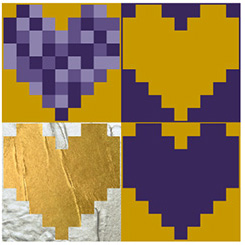
IN THE DIGITAL AGE
ABOUT EVENTS PARTICIPANTS MEDIA
ABOUT
Affect and Audience in the Digital Age is a Crossdisciplinary Research Cluster funded by the Simpson Center for the Humanities at the University of Washington. The group explores emergent modes of creative public scholarship. Specifically, we are interested in scholarly, pedagogical, curatorial, and creative practices that attend to the digitally mediated character of contemporary poetry.
While poets have long enjoyed a position as public intellectuals, teaching readers through carefully constructed emotional appeals, much poetic work is now written through impersonal digital methodologies such as crowd sourcing and data mining. Nevertheless, digitally mediated poetics have a particular affective density: even appropriated text from the Internet conveys the “powerful feelings” that Wordsworth described as the ideal for poetry. Given the new realities of digital composition and distribution, how has the position of the poet changed? Can digital mediation impact the direction in which knowledge and expertise flow? Where is creativity located now?
EVENTS
2016-2017
Affect and Audience in the Digital Age: Activist Poetics
February 3, 2017
The 2017 symposium Activist Poetics examines notions of activist poiesis and activist poetics to investigate the intersections between digital activism, contemporary experimental writing and performance, and new media practices. This symposium includes a public performance shaped by the engagements of our participants.
#Blacklivesmatter, #sayhername, #blacktranslivesmatter: these hashtags are incantations, poetic phrases used to mobilize social movements through digital networks. Recent years have seen a series of public controversies within North American poetry around the use of racially-charged and, in some cases, racially-insensitive material used in the name of an avant-garde aesthetics based on shock-value. This work has been widely criticized; many have argued that the world itself is already a far more shocking place than such works reveal, and that the aforementioned hashtags have done more to draw attention to its horrors. Cathy Park Hong, Associate Professor at Sarah Lawrence College and poetry editor of The New Republic, has named contemporary activist poetics as the new avant-garde. Writers working in this vein have been influenced and inspired by—and have also participated in—the surge of public, digitally inflected social movements, which are themselves a mode of poiesis—an act of making that forges coalitional bonds.
Curated by micha cárdenas (Interdisciplinary Arts and Sciences, UW Bothell), Amaranth Borsuk (Interdisciplinary Arts and Sciences, UW Bothell), and Sarah Dowling (Interdisciplinary Arts and Sciences, UW Bothell).
Registration: activistpoetics.eventbrite.com
Symposium Website: activistpoetics.tumblr.com
Simpson Center Website: https://simpsoncenter.org/projects/affect-audience-digital-age-activist-poetics
Symposium Schedule
Petersen Room, Allen Library (4th floor), University of Washington, Seattle
10-10:15 am Opening Remarks
micha cárdenas (Interdisciplinary Arts & Sciences and Interactive Media Design, UW Bothell), director of the Poetic Operations Collaborative
10:15-11:30 am
Alexis Pauline Gumbs (PhD in English, African & African American Studies and Women & Gender Studies, Duke University), founder of the School of Our Lorde, an inter-generational multi-media education initiative
C Davida Ingram (Independent Artist), 2014 Stranger Genius award winner and co-founder of Seattle People of Color Salon
12:45-2 pm
Carmen Giménez Smith (English, New Mexico State University), a Canto Mundo Fellow, poet, publisher of Noemi Press, and co-editor of Angels of the Americlypse: New Latin@ Writing (Counterpath Press, 2014)
Layli Long Soldier (English, Diné College), a Lannan Literary Fellow, recipient of a Native Arts and Cultures Foundation artist fellowship and a Whiting Writers Award, and author of the forthcoming Whereas (Graywolf, 2017)
2:30-3:30 pm
Dawn Lundy Martin (English, University of Pittsburgh), co-founder of The Third Wave Foundation and Center for African American Poetry and Poetics (CAAPP), whose most recent book, Life In A Box Is A Pretty Life (Nightboat, 2014), received a 2015 LAMBDA Literary Award for Best Lesbian Poetry
Kai Green (Feminist Studies, University of California, Santa Barbara), a scholar, poet, and film maker who combines scholarship, art and activism in his research on race, gender, and sexuality in black LGBT communities and cultural production
3:45-4:15 pm Roundtable
4:15-4:30 pm Closing Remarks
Microsoft Auditorium, Seattle Public Library-Central Library, 1000 Fourth Ave
7:30-9 pm Performances by symposium participants and local artists. Free and open to the public.
Featuring: Alexis Pauline Gumbs, Kai Green, Fabian Romero, Carmen Gimenez Smith, Layli Long Soldier, and special guests.
2015-2016
Affect and Audience in the Digital Age: Translational Poetics
January 29, 2016
Communications 202
The symposium Affect & Audience in the Digital Age: Translational Poetics investigates contemporary scholarly, aesthetic, and activist projects that engage the processes and thematics of translation. The symposium explores translational crossings that move from analog to digital, from notation to embodiment, and from one interface to another. Building upon the collaborative research cluster’s previous conversations about the rhetorical power and affective charge carried by digital methodologies in contemporary art and literature, this event gathers scholars and practitioners whose work challenges commonplace notions of medium specificity.
We seek to investigate, in Adorno’s terms, how digital-age artworks “go over into their other, find continuance in it.” By considering digitality through the lens of translation and translation through the lens of digitality, our symposium aims to uncover and theorize emergent practices that go over into and find continuance in their movement across different media. We look at artistic, archival, and activist projects that move from the digital to the analog, from embodied performance to notation, and from one interface to another. Our aim is to use the thematics of translation to better understand the affects and effects of digitally mediated art and literature.
Symposium Schedule
9:30-10 am Coffee and tech setup
10-10:15 am Opening Remarks
Amaranth Borsuk (Interdisciplinary Arts & Sciences, UW Bothell)
10:15-11:45 am Roundtable I: Analog and Digital

Jordan Abel (Doctoral Candidate, Simon Fraser University) a Nisga’a writer residing in Vancouver whose research focuses on digital humanities and indigenous poetics. A conceptual writer and artist, Abel engages with the representation of indigenous peoples in anthropology and popular culture. He is the author of Injun (Talonbooks 2016); Un/inhabited (Project Space Press and Talonbooks, 2015); and The Place of Scraps (Talonbooks, 2013), a finalist for the Gerald Lampert Memorial Award and the winner of the Dorothy Livesay Poetry Prize. His recent books mine Project Gutenberg’s digital collection of Western pulp novels for the language of colonization, re-orchestrating that language to interrogate notions of “the public domain.”
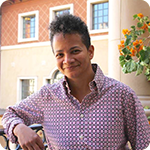
Kara Keeling (Associate Professor of Critical Studies and American Studies & Ethnicity, University of Southern California) author of The Witch’s Flight: The Cinematic, the Black Femme, and the Image of Common Sense (Duke, 2007). Keeling’s research focuses on digital media, globalization, and difference, with an emphasis on Afrofuturism, Africana media, queer and feminist media, and sound. Together with Thenmozhi Soundarajan, Keeling co-curates From Third Cinema to Media Justice: Third World Majority and the Promise of Third Cinema, an archive and work of multi-media scholarship focused on one of the first women of color media justice collectives in the United States.

Lori Emerson (Associate Professor of English and Intermedia Arts, Writing & Performance, University of Colorado at Boulder) a scholar of media poetics whose Media Archaeology Lab is the largest center in North America for the collection and study of obsolete technologies, tools, hardware, and platforms. Emerson is the author of Reading Writing Interfaces: From the Digital to the Bookbound (University of Minnesota Press, 2014) and co-editor of three collections: The Johns Hopkins Guide to Digital Media, with Marie-Laure Ryan and Benjamin Robertson (2014); Writing Surfaces: The Selected Fiction of John Riddell, with Derek Beaulieu (Wilfred Laurier University Press, 2013); and The Alphabet Game: a bpNichol Reader, with Darren Wershler (Coach House Books, 2007).
Interlocutor: Nasrin Himada (Communications, Université de Montréal) a writer, editor, and curator residing in Toronto. Her interdisciplinary research interests focus on Palestinian cinema, art and poetics, and the militarization of urban space through prison infrastructure and police surveillance. Her curatorial work has been exhibited at Leonard and Bina Ellen Art Gallery, DHC/ART: Foundation for Contemporary Art, Echo Park Film Center, 16 Beaver, and Image + Nation. From 2011 to 2016, Nasrin co-edited the journal Scapegoat: Architecture/Landscape/Political Economy. She is the co-editor of the inaugural issue of MICE Magazine on the theme of invisible labour, and is presently the curator at Art Metropole.
11:45 am – 1 pm Lunch (Provided)
1- 2:30 pm Roundtable II: Notation and Embodiment
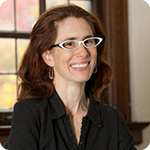
Amy Sara Carroll (Assistant Professor of English Language & Literature, University of Michigan), a poet and theorist of contemporary Latin@ art, literature, and performance. Author of the poetry collections SECESSION (Hyperbole Books, 2012) and FANNIE + FREDDIE/The Sentimentality of Post-9/11 Pornography (Fordham University Press, 2013), selected by Claudia Rankine for the Poets Out Loud Prize. Since 2008, she has been a member of the collective Electronic Disturbance Theater 2.0/b.a.n.g. lab, co-producing the Transborder Immigrant Tool. Carroll’s first critical monograph REMEX: Toward an Art History of the NAFTA Era is forthcoming from the University of Texas Press.
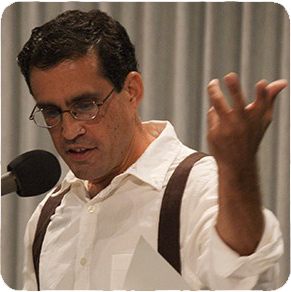
Rodrigo Toscano (New York Labor Institute), Project Director for The Labor Institute, a poet and playwright whose Collapsible Poetics Theater explores the potential for group action to enact speculative explorations of collective subjectivity. The author of seven books, Toscano has appeared in numerous anthologies, including Against Expression, Diasporic Avant Gardes, Poetic Voices without Borders, and Best American Poetry. Toscano’s Spanish language poetry appears as a book, Globo-Exilio-Ejercito, and in the anthology, Malditos Latinos, Malditos Sudacas. His books have been a 2007 National Poetry Series Selection, a recipient of a 2005 New York State Fellowship in Poetry and two Fund for Poetry grants.

Stephen Voyce (Assistant Professor of English, University of Iowa), the author of Poetic Community: Avant-Garde Activism and Cold War Culture (University of Toronto Press, 2013), editor of a book of variations: love – zygal – art facts (Coach House Books, 2013), and Director of the Fluxus Digital Collection, an online archive of artifacts created by members of the twentieth-century art movement. Together with Dee Morris, he co-curates the Counter Map Collection, an ongoing project exploring relations between mapmaking, aesthetics, activism, and digital media.
Interlocutor: micha cárdenas (Interdisciplinary Arts & Sciences, UW Bothell)
2:30-3 pm Coffee and Refreshments
3-4:30 pm Enter Interface: A Roundtable Conversation with Participants and Audience
Interlocutor: Sarah Dowling (Interdisciplinary Arts & Sciences, UW Bothell)
4:30-5 pm Coda and Notes toward Participatory Publication
Gregory Laynor (English, UW Seattle, and Interdisciplinary Arts & Sciences, UW Bothell)
As part of the event, we issued this call for participation to attendees, the fruits of which are included in EP 84:
The first Affect and Audience symposium culminated in a free digital chapbook, published by Essay Press, with conversations between the participants, extending the dialogue begun at the Simpson Center. This year, we invite the audience—so central to the thinking of our working group—to join the conversation and contribute to our forthcoming publication, to be issued by Essay Press in late 2016. Your participation can take two forms:
1. Today’s events are staged as a series of panel presentations followed by a roundtable that includes the panelists and audience. Affect and Audience: Translational Poetics will include a transcript of this conversation. If you speak up, please make sure we have your name as you would like it to appear. If you would prefer, we can list you as “Audience Member.” Please let us know your preference by emailing Amaranth Borsuk at aborsuk@uw.edu.
The publication will be announced on the Simpson Center website, the UW Bothell Interdisciplinary Arts & Sciences website, Twitter, and Facebook.
2. In the spirit of considering notation and counter-mapping as modes of translation, we invite you to submit your own notational response to this symposium. Whether a scan of your jottings, a marked-up copy of this program, a map, or other response composed after the event, we welcome your submissions in digital form. While submissions need not be print resolution, we appreciate larger scans or images if available. Please email your submission, along with your name and a brief bio, to Amaranth Borsuk at aborsuk@uw.edu. If your work is selected for publication, we will contact you to confirm.
2014-2015
The primary activity of the Affect & Audience in the Digital Age crossdisciplinary research cluster for 2014-15 is a series of seminars and colloquia at which we will discuss selected readings and present samples of our ongoing research projects. To supplement and stimulate these discussions, we will invite guest speakers to the UW campuses.
Spring 2015: Joyelle McSweeney and Don Mee Choi, A Discussion on The Necropastoral
Friday, May 22, 2015, 2:00pm, Communications 202
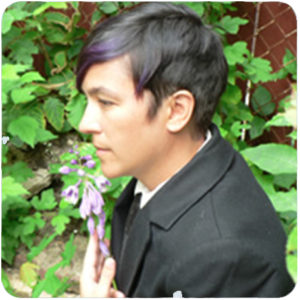
Joyelle McSweeney is Associate Professor of English and Director of Creative Writing at the University of Notre Dame. She is a poet, prose writer, playwright, critic, and publisher. McSweeney’s scholarly interests include poetry, prose, drama, voice, sound, performance, genre, poetic, narrative and dramatic form, politics, media, violence, diction, translation, the Gothic, and the necropastoral. Her play Dead Youth, or, The Leaks won the inaugural Leslie Scalapino Prize for Innovative Women Playwrights. McSweeney is the author of six books of poetry and prose, most of which also contain plays: Salamandrine: 8 Gothics (Tarpaulin Sky Press, 2012); Percussion Grenade (Fence Books, 2012); Flet (Fence, 2008); Nylund, the Sarcographer (Tarpaulin Sky, 2007); The Commandrine (Fence, 2004); and The Red Bird, which was selected by Allen Grossman to inaugurate the Fence Modern Poets Series in 2001. With Johannes Göransson, McSweeney founded and edits Action Books, an international press for poetry and translation.
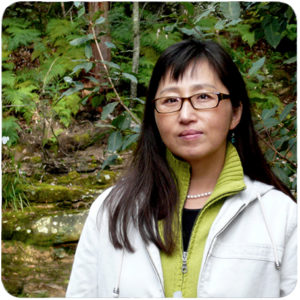
Don Mee Choi grew up in Seoul and Hong Kong and now lives in Seattle. She is the author of The Morning News Is Exciting (Action Books, 2010), editor of Anxiety of Words: Contemporary Poetry by Korean Women (Zephyr Press, 2006), and a recipient of a 2011 Whiting Writer’s Award and the 2012 Lucien Stryk Translation Prize. Choi has translated several books by Korean poet Kim Hyesoon, most recently Sorrowtoothpaste Mirrorcream, published by Action Books.
In conjunction with this event, there will be a performance of Dead Youth: Or The Leaks at INCA on May 22, 2015, 7:30 PM at INCA Seattle, 1900 Airport Way S, Seattle, WA, 98134.
Winter 2015: Judith Rodenbeck on Bipedal Modernity
Friday, February 20, 2015, Communications Building (CMU) 202, University of Washington
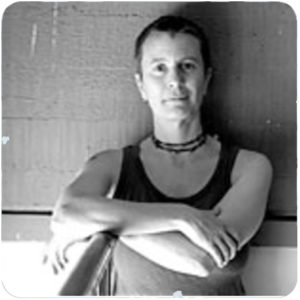
Judith Rodenbeck’s (Media and Cultural Studies, University of California, Riverside) talk takes as its starting point a short text by the philosopher Giorgio Agamben, who locates the first fully scientific physiological description of the mechanics of walking alongside the chronophotography of Etienne-Jules Marey, the incipience of Taylorization, and the disappearance of walking as an everyday practice. Folding the history of the late 19th century onto the 21st, the talk surveys the mood and politics of today’s proliferation of artists’ walking projects as well as of developments in robotics of both “walking” and “feeling” machines.
Judith Rodenbeck’s teaching and research encompass critical theory, performance studies, and the politics of aesthetics. Rodenbeck’s book, Radical Prototypes: Allan Kaprow and the Invention of Happenings (2011), explores the emergence of performance and intermedia in 1950s fine arts. She is currently working on a book of case studies of women artists engaged with media ecologies, featuring essays on Lygia Clark, Joan Jonas, Alison Knowles, and Marta Minujin; a longitudinal study of the intersections between what Marcel Mauss called “techniques of the body” and the visual arts configured through the notion of the performative; and an experimental text, Bipedal Modernity. She has served as editor-in-chief of Art Journal and her work has appeared in journals such as October, Grey Room, X-TRA, and Artforum.
Fall, 2014: Ronaldo Wilson at the Convergence on Poetics
September 25-27, 2014, University of Washington, Bothell
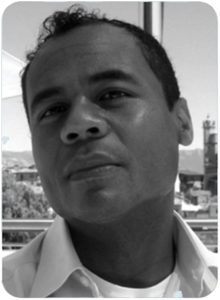
Affect & Audience in the Digital Age is pleased to sponsor the participation of poet and performer Ronaldo Wilson in this year’s Convergence on Poetics at the University of Washington Bothell. This annual event kicks off the academic year for the MFA in Creative Writing and Poetics, introducing new students to ideas surrounding poetics and interdisciplinary artistic practice and gathering the returning cohort, who will spend the year working on their thesis projects. At the Convergence, Wilson will participate in a panel discussion, “Thinking Liveness” on Friday, September 26, and will deliver a performance on Saturday, September 27.
Wilson is the author of the collections Poems of the Black Object, which won the Publishing Triangle’s Thom Gunn Award, and Narrative of the Life of the Brown Boy and the White Man. With poets Dawn Lundy Martin and Duriel E. Harris, Wilson cofounded the performance-based Black Took Collective.
[Audio of this event has been archived at Pennsound.]
2013-2014
Symposium: October 18, 2013
Affect & Audience in the Digital Age was a one-day symposium exploring emergent modes of creative public scholarship, specifically scholarly, pedagogical, curatorial, and creative practices that attend to the digitally mediated character of contemporary poetry. It addressed the key questions that govern our workgroup: Given the new realities of digital composition and distribution, how has the position of the poet changed? Can digital mediation impact the direction in which knowledge and expertise flow? Where is creativity located now?
This event opened in UW Libraries’ Archives and Special Collections with a hands-on examination of artists’ books and works of conceptual writing that take advantage of appropriation, crowd-sourcing, digital archives, or other methodologies that interlink the work’s concept and form. We considered: How has print on demand publishing facilitated the creation of artists’ books that might once have been thought unpublishable? How do such works align with unique and hand-made artists’ books that take advantage of similar techniques?
This session was followed by lunch and a roundtable discussion with our invited participants that addressed the institutional, curatorial, and pedagogical implications of emergent modes of digitally mediated poetry, and the ways in which digitally mediated works make use of affect in their public appeals.
We closed with an evening of performances at the Henry Art Gallery by invited poet-scholars and artists who consider the communities addressed by digitally mediated poetry and the means through which such artistic-intellectual products reach them.
Symposium Participants
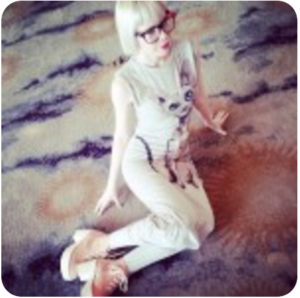
Kate Durbin, author of The Ravenous Audience, and founder of the journal Gaga Stigmata and the tumblr Women as Objects.
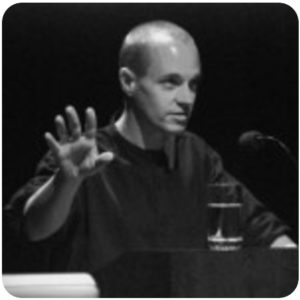
Craig Dworkin, author of No Medium andReading the Illegible, and co-editor with Kenneth Goldsmith of Against Expression: An Anthology of Conceptual Writing.
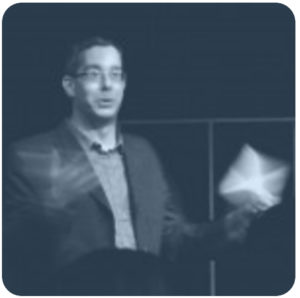
Adam Frank, scholar of media and affect, and founder of Radio Free Stein, a project rendering the writings of Gertrude Stein into musical form.

Ray Hsu, author of Anthropy and Cold Sleep Permanent Afternoon, and co-founder of Art Song Lab, an interdisciplinary platform for fusions across poetry, music, and performance.

Rachel Zolf, author of Human Resources andNeighbor Procedure, and founder of The Tolerance Project, a collaborative MFA produced from poetic DNA donated by eighty writers, artists, and thinkers.
UW PARTICIPANTS
[widgetkit id=1341]
Amaranth Borsuk (Interdisciplinary Arts & Sciences, UW Bothell)
Sarah Dowling (Interdisciplinary Arts & Sciences, UW Bothell)
Gregory Laynor (English, UW Seattle)
Brian Reed (English, UW Seattle)
micha cárdenas (Interdisciplinary Arts and Sciences, UW Bothell)
Aeron Bergman (Interdisciplinary Arts & Sciences, UW Bothell)
Alejandra Salinas (Interdisciplinary Arts & Sciences, UW Bothell)
Sandra Kroupa is Curator of Book Arts & Rare Books at the UW Libraries. Her experience includes a bookbinding apprenticeship, producing handmade paper, and printing on her own letterpresses
MEDIA
NOTES FROM THE EVENT, 2016
[widgetkit id=3946]
IMAGES FROM THE EVENT, 2014
[widgetkit id=1292]
AUDIO FROM THE EVENT, 2014
[soundcloud url=”https://api.soundcloud.com/playlists/79523364″ params=”color=ff5500&auto_play=false&hide_related=false&show_comments=true&show_user=true&show_reposts=false” width=”600″ height=”450″ iframe=”true” /]

